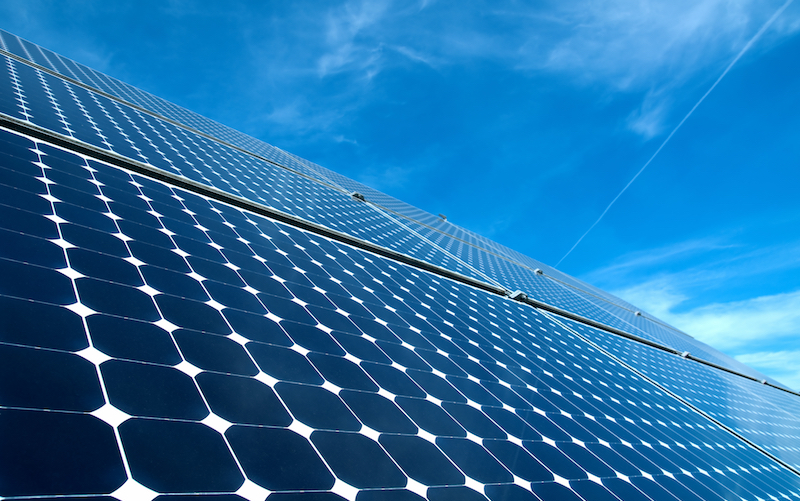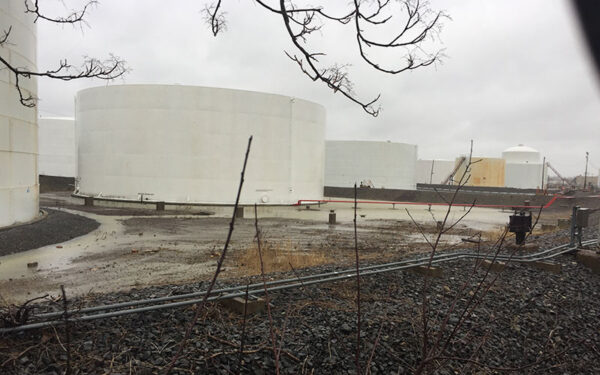
The Maine Public Utilities Commission recently passed a rule that would hurt solar progress, including stunting job growth and hampering benefits to solar panel owners in the state.
Maine is at risk of missing out on the potential of solar power. The solar industry is experiencing a country-wide surge as prices for solar panels drop, making it easier and more affordable for home and business owners to start producing their own home-grown energy. But the lack of a comprehensive solar policy here means that Maine continues to lag behind other states in the adoption of this clean, renewable resource.
The good news is the Maine Legislature is considering several promising solar bills over the next few weeks, some with excellent potential to expand the development of clean, renewable energy in the state. Passage of comprehensive, forward-thinking solar policy would be great news for all Mainers because more solar translates to new jobs, economic growth in rural areas, energy independence, and cleaner air – and that’s just a few of the many benefits.
CLF is actively pushing for solar reform to be passed by the state Legislature this session, but we’re not taking anything for granted. This week, CLF and our allies kicked off a lawsuit to halt a regressive new rule released by the Public Utilities Commission in March, which threatens to punish solar panel owners and keep Maine in the back of the pack on solar (not to mention preventing us from gaining all those benefits I mentioned above).
The Commission’s Anti-Solar Rule Hurts All Mainers
The Commission’s new rule hurts the people of Maine by essentially shutting off access to a growing source of clean, local, affordable energy.
The rule eliminates current net metering practices (a simple reimbursement plan that pays solar panel owners for the energy they contribute to the electricity grid). And, because that apparently wasn’t bad enough, the rule also imposes fees on solar panel owners for the electricity they generate and use in their own homes or businesses. (Check out this earlier blog, and take a look here to learn more about net metering).
We’ll keep you up to date as our lawsuit moves forward. In the meantime, we’re also working through legislative channels to force the Commission to reinstate net metering.
What’s Going on at the State House?
Frankly, it’s past time for our legislature to help us take advantage of the booming new solar industry that promises jobs, clean and secure energy, and electricity savings for all Mainers.
The process starts with the Legislature’s Committee on Energy, Utilities and Technology, which has the opportunity to move Maine in the right direction with its consideration of three bills, all with exciting potential. This week, it held a public hearing on LD 1373, An Act to Protect and Expand Access to Solar Power in Maine, which would stabilize the solar marketplace by ensuring that net metering (that simple reimbursement structure for solar panel owners) remains in place for those who are generating power and selling it into the grid.
What’s more, the bill would establish a rebate program to assist Mainers who are considering installing panels with the upfront costs. These two programs will encourage more Mainers and local businesses to install solar panels, and lead to solar growth in the State.
How You Can Make a Difference
The Committee’s consideration of these solar bills creates an opportunity for us to have our voices heard. Yesterday at 1 p.m. there was a public hearing. I was there representing CLF and offering the Committee information and perspectives on solar policy and net metering.
You can help push Maine forward, too. There’s another hearing on May 10 at 11:30 a.m., this time discussing a second solar bill, LD 1504, “An Act Regarding Solar Power for Farms and Businesses.” Mainers, this is a great opportunity to tell your legislators that you want more solar, either in person at the hearing or by giving committee members a call in the days leading up to the hearing. When you call, let committee members know:
- You want policy that will support installation of solar by businesses and cities and towns.
- This bill (LD 1504) doesn’t go far enough. Maine needs strong solar policy for homes and small businesses, including net metering and a rebate program, to enhance development of solar in the state. This will lead to more jobs, economic growth, and cleaner air.
- Barriers to community solar have got to go in order to increase accessibility of solar benefits for all.



